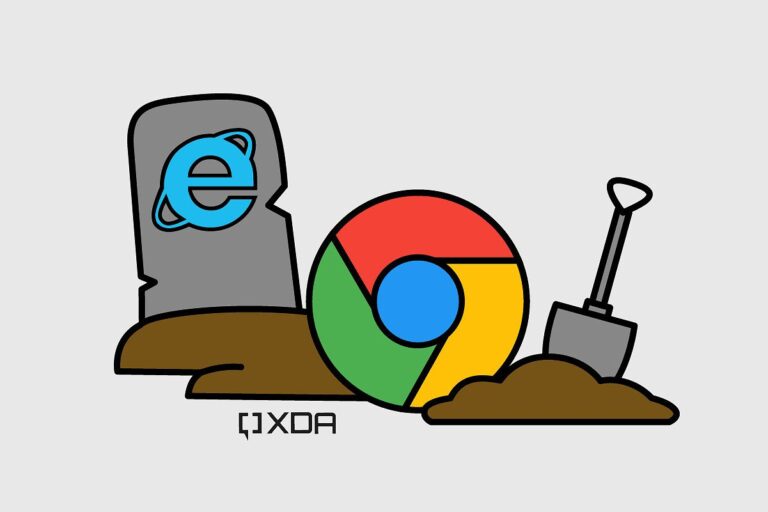What’s the Difference between Ubuntu and Debian?
For Linux enthusiasts and tech bloggers alike, the realm of open-source operating systems offers a diverse array of options, but none are perhaps as iconic as Ubuntu and Debian. These two distributions have long been stalwarts of the Linux world, each with its staunch band of followers. Yet, for those looking to dip their toes into the world of Linux or to understand its broader landscape, it’s crucial to distinguish the unique flavors that Ubuntu and Debian bring to the table. In this comprehensive comparison, we break down the key differences between the two and offer insights that can help demystify these powerful platforms.

History and Development
Ubuntu: The Community Version of Debian
Ubuntu’s inception in 2004 by South African entrepreneur Mark Shuttleworth was marked by the aim to create a user-friendly Linux distribution that could appeal to a broad audience. Essentially, Ubuntu is an offshoot of the Debian project, which has a reputation for being one of the oldest and most resilient providers of free software. Early on, Ubuntu’s focus on usability and regular release cycles set it apart from Debian’s renowned stability but less frequent software updates.
Debian: The Father of Many
Debian, with a founding date of 1993, is ancient by the standards of the open-source community. Known for its commitment to the principles of the free software movement, Debian is also distinguished by its ambitious nature; it isn’t just an operating system but a universal computing platform servicing everything from personal computers to network servers. Many popular Linux distributions, including Ubuntu, have been derived from Debian, cementing its role as a foundational parent in the Linux world.
Philosophy and Community
Ubuntu: Guided by the Desire for Accessibility
Ubuntu’s defining character is its unabashed goal to make Linux accessible to all. The distribution is shaped by its community-driven development model and emphasizes the importance of user feedback and ease of use. This all-inclusive philosophy has led to the creation of the Ubuntu Software Center, a user-friendly central location for software downloads and updates, along with a bustling community that provides an array of options for support and engagement.
Debian: A Rock-Solid Commitment to Free Software
Debian prides itself on its unwavering commitment to the principles of free software. Its development process is democratic and open, with a focus on stability and security. The Debian social contract and the Debian free software guidelines are testaments to the community’s intractable stance on principles, and the distribution’s integrity has created a reputation for being reliable and robust, albeit sometimes seen as less user-friendly.
Software Management
Debian: The Silent Backbone
Debian employs the Advanced Package Tool (APT) for handling software packages, inheriting a tradition of flexible and robust package management. APT automates the retrieval, configuration, and installation of software packages from repositories, simplifying the process for users and ensuring the integrity of the system. For many, this system represents the gold standard in package management.
Ubuntu: Building Upon Debian’s Work
Ubuntu’s approach to software management is derived from its parent distribution, with APT at the core of its package handling. However, Ubuntu adds its repositories for an expanded library of software, making use of the Snap package format, known for its containerized approach to application management. This has facilitated the integration of a wide variety of third-party software into the Ubuntu ecosystem, increasing the breadth of options available to users.
User Interface
Unity vs. GNOME
For years, Ubuntu was known for its unique Unity desktop environment, which was designed to provide a streamlined and universal user experience. However, following community feedback, Ubuntu transitioned back to the GNOME desktop environment in 2017. GNOME, an elegant and minimalist interface, is highly customizable and is meant to provide a consistent experience across different Linux distributions.
The Esteemed Debian Default
Debian, in keeping with its stable and utilitarian nature, offers a no-frills, yet efficient, default setup. The distribution is typically shipped with the GNOME, KDE Plasma, or Xfce desktop environments – conservative choices that reflect Debian’s ethos of reliability over aesthetic flourishes. However, as with everything in the Linux world, user customization knows no bounds, and Debian users can easily swap to other environments or window managers to suit their preferences.
Stability vs. Cutting Edge
Debian: The Bastion of Reliability
Debian’s commitment to stability means that software updates tend to be less frequent. This approach is favored by system administrators and others who rely on a consistent environment to run applications or services. The release cycle of Debian, while subject to occasional lengthy waits, is carefully managed to balance the need for new features with the importance of maintaining system integrity.

Ubuntu: A Blend of Both Worlds
Ubuntu’s release model occupies a unique space in the Linux universe. Each version of Ubuntu is released every six months, with long-term support (LTS) releases occurring every two years. LTS versions guarantee support and updates for five years, providing a balance between cutting-edge features and a stable foundation. This is a boon for desktop users and some server applications who want the latest and greatest without sacrificing too much stability.
Use Cases and Target Audience
Who Should Use Ubuntu?
Ubuntu excels as a versatile and user-friendly operating system for desktop use. Its LTS releases are especially popular in server environments where a potent combination of the latest software and long-term stability is required. Developers appreciate Ubuntu for its out-of-the-box integration with cloud services and its support for the latest development technologies and platforms.
Who Should Use Debian?
Debian is ideal for those who value stability above all else and need a dependable operating system for critical workloads. It’s well-suited for server deployments, particularly for infrastructure that requires a high level of security. For users who prefer to customize their environment from the ground up, Debian’s minimal installation option provides a solid foundation without the frills.
Performance and Resource Usage
Default Installations Compared
Debian’s minimalism is reflected in its default installation, which typically uses fewer system resources than Ubuntu. This makes Debian an attractive choice for older hardware or for those who want to conserve computing resources. The relatively lighter default Debian installation provides a robust platform that users can build on based on their specific needs.
Benchmarking Common Tasks
Benchmarking is always subjective to specific use cases, but in general, Debian’s more conservative approach to resource management may lead to slightly improved performance on the same hardware when compared to Ubuntu, which is designed with a broader audience in mind and thus a more feature-rich out-of-the-box experience.
Conclusion
In comparing Ubuntu and Debian, it’s clear that while they share a common heritage, they have diverged to accommodate different needs and philosophies. Ubuntu stands as a testament to the power of a user-focused design, brimming with features and supported by an active community. On the other hand, Debian is the unwavering beacon of stability, its clean design and time-tested balance between software updates and system reliability appealing to those who value a steadfast computing environment.
For those new to Linux, Ubuntu’s approachable nature may be the perfect point of entry. However, for system administrators, developers, and users who require a dependable and unshakeable platform, Debian’s cautious cadence might offer the perfect fit. And of course, preferences here can always be just as fluid as the code that underpins these operating systems, with many users finding they have uses for both within their digital toolkit.
In the end, the choice between Ubuntu and Debian is just the beginning of the Linux journey, a world that is built on choice, freedom, and boundless creativity. Whether it’s for personal computing, professional applications, or something in between, each flavor of Linux has something unique to offer, and the depth of Debian or the accessibility of Ubuntu can serve as a rich introduction to the vast ecosystem that is open-source technology.







